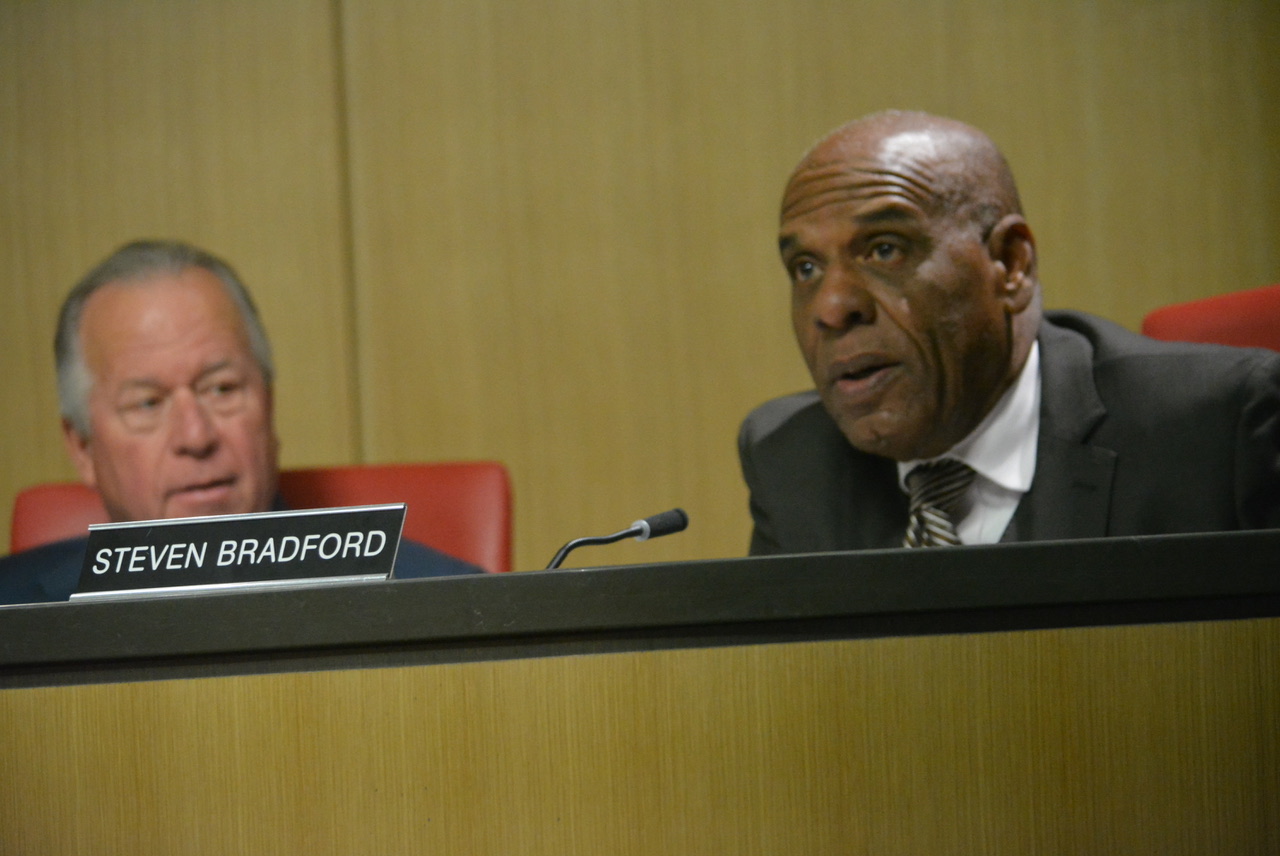Governor Newsom celebrates ‘paradigm shifting’ mental health legislation in Southern California

Governor Gavin Newsom gathered with civic leaders at Los Angeles General Medical Center on Thursday, Oct. 12 to celebrate the signing of two laws intended to transform the state’s approach to the twin crises of homelessness and mental health.
The first law, AB 531, seeks to create 11,150 mental health treatment beds and supportive housing units by placing Proposition 1, a $6.38 billion bond measure, on the March 2024 ballot for voters to decide. About $1 billion of that funding would be reserved for veterans.
The second law, SB 326, aims to modernize the Mental Health Services Act of 2004 by requiring that counties spend 30% of the act’s funding on housing. This change will also appear on the ballot as part of Prop. 1.
The two bills strive to ensure all Californians can access high quality mental health resources, including direly needed residential treatment beds, as well as stable supportive homes in which to recover.
“Today marks a powerful and important milestone that we are moving beyond identifying issues, to a paradigm shift to begin the process of being accountable to solve them,” said Newsom.
In L.A. County specifically, the reallocation of Mental Health Services Act funding would result in a roughly $1.47 billion boost for supportive housing and rental subsidies in the 2023 to 2024 fiscal year.
Los Angeles Mayor Karen Bass, who has made fighting homelessness her cornerstone issue, praised the new laws for recognizing the interdependent nature of being without a home and suffering from mental illness.
“We all know that we cannot address the unhoused population if we don’t address mental health and substance abuse at the same time,” she said. “I would ask everybody here, how they might deal with their mental health and substance abuse vulnerability if they were living in a tent for a month or a week.”
Not everyone is pleased by the new laws. A coalition of mental health advocates and supporters have declared their opposition to Prop. 1.
The group, Californians Against Proposition 1, fears that diverting MHSA funding to housing will defund existing community mental health services and lead to competition over the remaining money.
“Financial support for a wide array of effective, voluntary, evidence-based, community-based, accessible, service options will be dramatically cut,” the coalition stated. “Also on the chopping block is one of the only funding sources for peer support and culturally responsive mental health services for racial and ethnic minority communities.”
Californians Against Proposition 1 coalition members are also upset by last-minute changes to the bond measure’s language that allow funding to be applied to locked treatment facilities.
“They might have achieved true consensus on this measure if they had not so crassly attacked the funding lifeline that so many programs depend on today or introduced forced treatment into the bill at the last minute,” stated the coalition. “Our community sees, hears and feels this as disrespect, and we fear for our bodily autonomy and freedom.”
Other mental health organizations praised the reforms to the Mental Health Services Act as well as the funding provided by the new legislation.
Jolissa Hebard, a representative for the National Alliance on Mental Illness, spoke of her personal experience with mental illness — having a veteran father with PTSD, a mother with depression, a sister with bipolar disorder and a son who is a suicide attempt survivor.
“The Mental Health Services Act provided so much growth and so much opportunity over the last 20 years,” she said. “Now we get to be part of the change that’s going to allow families, people with mental health conditions, legislators, public officials, to build a better system within California for our loved ones.”
California state Senator Susan Eggman thanked families with loved ones experiencing mental illness played in developing these two bills.
“You lead the way the decades that you have spent searching for your loved ones in hospitals and emergency rooms on the streets … waiting for that phone call to know thank God they’re in jail or not being assaulted on the streets,” she said. “We all come to this with our own personal stories about the frustrations of knocking our heads against walls trying to get people we love help.”
L.A. County Supervisor Hilda Solis noted how the increased availability of treatment beds and supportive housing will play a key role in enabling the county’s implementation of Gov. Newsom’s CARE Court.
CARE Court seeks to leverage the court system to connect individuals with schizophrenia, bipolar challenges and other psychotic disorders with care instead of living on the streets or landing in jail cells.
“We are less than two months out from launching the Governor’s CARE Court initiative and finally having the tools we need to help people with schizophrenia and psychotic disorders that have been nearly impossible to help in the past,” she said. “The two bills that Governor Newsom will be signing today are essential to our success.
However, similar to Prop 1., some mental health and disability rights advocates have fears about compelled treatment under CARE Court. In particular, they worry the court will impinge on people’s civil rights and disproportionately affect people of color, who make up the majority of the state’s unhoused population.




